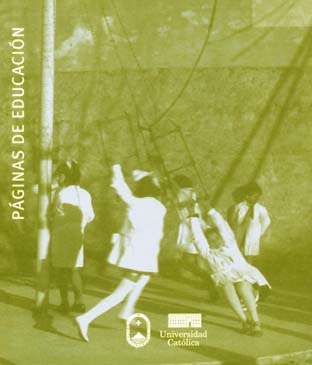The limits of disruption in the academic order:
DIY culture at University
DOI:
https://doi.org/10.22235/pe.v10i2.1428Keywords:
teaching innovation, students’ agency, creativity, digital competence, collaborationAbstract
Considering the current challenges of higher education, this article aims to show the principles and the implementation of the DIY perspective, in the teaching and learning process of a course of the Pedagogy degree at the University of Barcelona. The text describes the European project DIYLab —carried out through participatory action research— and describes its implementation in the mentioned course. Finally, students' contributions are presented, as well as the consideration of the challenges and possibilities of introducing elements of DIY culture into the University.
Downloads
References
Barbour, R., y Kitzinger, J. (Eds.). (1999). Developing Focus Group Research: Politics, Theory and Practice. Londres, Inglaterra: Sage.
Bauman, Z. (2008). Los restos de la educación en la Modernidad Líquida. Barcelona, España: Gedisa.
Bland, D., y Atweh, B. (2007). Students as researchers: engaging students’ voices in PAR. Educational Action Research, 15(3), 227-249.
Casanellas, M., y Medir, L. (2013). Capacitat d’aprenentatge i responsabilitat. En R. Sayós (Coord.), Competències transversals a les titulacions de grau de la Universitat de Barcelona. Orientacions per al seu desenvolupament (pp. 22-35). Barcelona, España: Octaedro-ICE.
Cobo, C. (2016). La Innovación Pendiente.: Reflexiones (y Provocaciones) sobre educación, tecnología y conocimiento. Nueva York, NY: Penguin Random House.
Dussel, I., y Gutiérrez, D. (Comps.). (2006). Educar la mirada. Políticas y pedagogías de la imagen. Buenos Aires, Argentina: Manantial/FLACSO.
Eisenberg, M., y Buechley, L. (2008). Pervasive Fabrication: Making Construction Ubiquitous in Education. Journal of Software, 3(4), 62 – 68.
European Communities. (2007). Key Competences for Lifelong Learning. European Reference Framework. Luxemburgo: Office for Official Publications of the European Communities
Garrison, D. R., y Anderson, T. (2003). E-Learning in the 21st Century: A Framework for Research and Practice. Londres, Inglaterra-Nueva York, NY: Routledge-Falmer.
Groff, J. S. (2013). Expanding our “frames” of mind for education and the arts. Harvard Educational Review, 83(1), 15–39.
Guzzetti, B. J., Elliott, K., y Welsch, D. (2010). DIY Media in the Classroom: New Literacies Across Content Areas. Nueva York, NY: Teachers’ College Press.
Halfacree, K. (2004). “It could only do wrong”: Academic Research and DIY Culture. En D. Fuller, y R. Kitchin (Eds.), Radical Theory/Critical Praxis: Making a Difference Beyond the Academy? (pp. 68-78). Victoria, Canadá: Praxis Press.
Halverson, E., y Sheridan, K. (2014). The maker movement in Education. Harvard Educational Review, 84(4), 495-504.
Hernández-Hernández, F., y Onsès, J. (2016). La evaluación de los objetos visuales digitales. En F. Hernández-Hernández y J. M. Sancho-Gil (Coords.), La perspectiva DIY en la Universidad: ¡hazlo tú mismo y en colaboración! (pp. 87 – 94). Barcelona, España: Octaedro.
Hernández-Hernández, F., y Sancho-Gil, J. M. (2017). La perspectiva DIY y la trayectoria del Grupo Indaga-t. En F. Hernández-Hernández, y J. M. Sancho-Gil (Coords.), La perspectiva DIY en la Universidad: ¡hazlo tú mismo y en colaboración! (pp. 15-24). Barcelona, España: Octaedro.
Holstein, J. A., y Gubrium, J. F. (Eds.). (2008). Handbook of constructionist research. Nueva York, NY: The Guilford Press.
Jenkins, H., Purushotma, R., Weigel, M., Clinton, K., y Robison, A. J. (2009). Confronting the Challenges of Participatory Culture. Media Education for the 21st Century. Cambridge, MA: MIT Press.
Kafai, Y., y Peppler, K. (2011). Youth, Technology, and DIY: Developing Participatory Competencies in Creative Media Production. Review of Research in Education, 34. Recuperado de http://kpeppler.com/Docs/2011_Peppler_Youth_Technology_and_DIY.pdf
Kamenetz, A. (2010). DIY U: Edupunks, Edupreneurs, and the Coming Transformation of Higher Education. Vermont, Canadá: Chelsea Green Publishing.
Knobel, M., y Lankshear, C. (Eds.). (2010). DIY Media: Creating, Sharing and Learning with New Technologies. Nueva York, NY: Peter Lang.
Majó, A., Onsès, J., y Sánchez, J. A. (2017). Lo que hemos aprendido en torno a la filosofía DIY. En F. Hernández-Hernández, y J. M. Sancho-Gil (Coords.), La perspectiva DIY en la Universidad: ¡hazlo tú mismo y en colaboración! (pp. 25-38). Barcelona, España: Octaedro.
McKay, G. (Ed.). (1998). DIY Culture. Party and Protest in Nineties Britain. Londres, Inglaterra: Verso.
Reason, P., y Bradbury, H. (2001). Handbook of Action Research: Participative Inquiry and Practice. Londres, Inglaterra: Sage.
Rivera-Vargas, P., y Sánchez, J. A., (2016). Entornos, procesos y recursos tecnológicos de aprendizaje en el Grado de Pedagogía. En F. Hernández-Hernández, y J. M. Sancho-Gil (Coords.), La perspectiva DIY en la Universidad: ¡hazlo tú mismo y en colaboración! (pp. 72-77). Barcelona, España: Octaedro.
Sancho-Gil, J. M. (2017). ¿Qué conocimiento se fomenta y valora? ¿Dónde queda la equidad?. En P. Rivera-Vargas, E. Sánchez, R. Morales-Olivares, I. Sáez-Rosenkranz, C. Yévenes, y S. Butendieck (Coords.), Conocimiento para la equidad social: pensando Chile globalmente (pp. 125-130). Santiago de Chile, Chile: Colección Políticas Públicas – USACH.
Sancho-Gil, J. M., y Rivera-Vargas, P. (2016). The Socio-Economic Evaluation of a European Project: The DIYLab Case. Informatics, 3(13), 1-17. doi:10.3390/informatics3030013
Selwyn, N. (2017). Digital inclusion: can we transform education through technology? En P. Rivera-Vargas, E. Sánchez, R. Morales-Olivares, I. Sáez-Rosenkranz, C. Yévenes, y S. Butendieck (Coords.), Conocimiento para la equidad social: pensando Chile globalmente (pp. 103-108). Santiago de Chile, Chile: Colección Políticas Públicas – USACH.
Spencer, A. (2005). DIY: The rise of lo-fi culture. Londres, Inglaterra: Marion Boyars.
Van Maanen, J. (2011). Tales of the field: on writing ethnography. Chicago, IL: University of Chicago Press.
Williams, L., y Černochová, M. (junio, 2013). Literacy from Scratch. Presentado en WCCE 2013, 10th World Congress of Computers in Education, Torun, Polonia.
Wolf, M., y Mcquitty, S. (2011). Understanding the Do-It-Yourself Consumer: DIY Motivation and Outcomes. Academy of Marketing Science Review, 1(3-4), 154-170.
Xie, C., Bagozzi, R. P., y Troye, S. V. (2008). Trying to prosume: toward a theory of consumers as co-creators of value. Journal of the Academy of Marketing Science, 36(1), 109–122.















